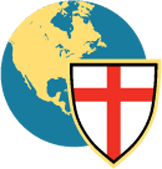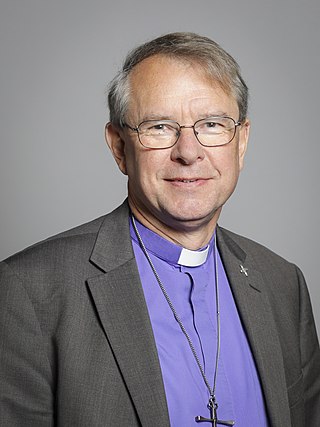
The Anglican Communion is the third largest Christian communion after the Roman Catholic and Eastern Orthodox churches. Founded in 1867 in London, the communion has more than 85 million members within the Church of England and other autocephalous national and regional churches in full communion. The traditional origins of Anglican doctrine are summarised in the Thirty-nine Articles (1571). The archbishop of Canterbury in England acts as a focus of unity, recognised as primus inter pares, but does not exercise authority in Anglican provinces outside of the Church of England. Most, but not all, member churches of the communion are the historic national or regional Anglican churches.

Since the 1990s, the Anglican Communion has struggled with controversy regarding homosexuality in the church. In 1998, the 13th Lambeth Conference of Anglican bishops passed a resolution "rejecting homosexual practice as incompatible with Scripture". However, this is not legally binding. "Like all Lambeth Conference resolutions, it is not legally binding on all provinces of the Communion, including the Church of England, though it commends an essential and persuasive view of the attitude of the Communion." "Anglican national churches in Brazil, South Africa, South India, New Zealand and Canada have taken steps toward approving and celebrating same-sex relationships amid strong resistance among other national churches within the 80 million-member global body. The Episcopal Church in the U.S. has allowed same-sex marriage since 2015, and the Scottish Episcopal Church has allowed same-sex marriage since 2017." "Church of England clergy have appeared to signal support for gay marriage after they rejected a bishops' report which said that only a man and woman could marry in church." At General Synod in 2019, the Church of England announced that same-gender couples may remain recognised as married after one spouse experiences a gender transition. In 2023, the Church of England announced that it would authorise "prayers of thanksgiving, dedication and for God's blessing for same-sex couples."

The Anglican Church of Canada is the province of the Anglican Communion in Canada. The official French-language name is l'Église anglicane du Canada. In 2017, the Anglican Church counted 359,030 members on parish rolls in 2,206 congregations, organized into 1,571 parishes. The 2011 Canadian census counted 1,631,845 self-identified Anglicans, making the Anglican Church the third-largest Canadian church after the Catholic Church and the United Church of Canada. The 2021 Canadian census counted more than 1 million self-identified Anglicans, remaining the third-largest Canadian church. Like other Anglican churches, the Anglican Church of Canada's liturgy utilizes a native version of the Book of Common Prayer, the 1962 prayer book. A further revision, the 1985 Book of Alternative Services, has developed into the dominant liturgical book of the church.

The Church of Uganda is a member province of the Anglican Communion. Currently there are 37 dioceses which make up the Church of Uganda, each headed by a bishop.

The Anglican Church of Papua New Guinea is a province of the Anglican Communion. It was created in 1977 when the Province of Papua New Guinea became independent from the Province of Queensland in the Church of England in Australia following Papua New Guinea's independence in 1975.
The Anglican dioceses of Buganda are the Anglican presence in the Central Region, Uganda ; they are part of the Church of Uganda. The remaining dioceses of the Church are in the areas of Eastern Uganda, of Northern Uganda, of Ankole and Kigezi, and of Rwenzori.
The Anglican realignment is a movement among some Anglicans to align themselves under new or alternative oversight within or outside the Anglican Communion. This movement is primarily active in parts of the Episcopal Church in the United States and the Anglican Church of Canada. Two of the major events that contributed to the movement were the 2002 decision of the Diocese of New Westminster in Canada to authorise a rite of blessing for same-sex unions, and the nomination of two openly gay priests in 2003 to become bishops. Jeffrey John, an openly gay priest with a long-time partner, was appointed to be the next Bishop of Reading in the Church of England and the General Convention of the Episcopal Church ratified the election of Gene Robinson, an openly gay non-celibate man, as Bishop of New Hampshire. Jeffrey John ultimately declined the appointment due to pressure.
The Province of the Anglican Church of Burundi is a province of the Anglican Communion, located in East Africa between Tanzania, Rwanda, Kenya, and the Congo. The Archbishop and Primate of Burundi is Sixbert Macumi.

The Anglican Church in North America (ACNA) is a Christian denomination in the Anglican tradition in the United States and Canada. It also includes ten congregations in Mexico, two mission churches in Guatemala, and a missionary diocese in Cuba. Headquartered in Ambridge, Pennsylvania, the church reported 974 congregations and 122,450 members in 2021. The first archbishop of the ACNA was Robert Duncan, who was succeeded by Foley Beach in 2014.
The Anglican Church of Rwanda is a province of the Anglican Communion, covering 13 dioceses in Rwanda. The primate of the province is Laurent Mbanda, consecrated on 10 June 2018.
The Province of the Anglican Church of the Congo is a province of the Anglican Communion, stretching over the Democratic Republic of the Congo and the Republic of the Congo.
The Global Anglican Future Conference (GAFCON) is a series of conferences of conservative Anglican bishops and leaders, the first of which was held in Jerusalem from 22 to 29 June 2008 to address the growing controversy of the divisions in the Anglican Communion, the rise of secularism, as well as concerns with HIV/AIDS and poverty. As a result of the conference, the Jerusalem Declaration was issued and the Global Fellowship of Confessing Anglicans was created. The conference participants also called for the creation of the Anglican Church in North America as an alternative to both the Episcopal Church in the United States and the Anglican Church of Canada, and declared that recognition by the Archbishop of Canterbury is not necessary to Anglican identity.

Paul Roger Butler is a British Anglican bishop and a lords spiritual of the House of Lords. He is the Bishop of Durham, the diocesan bishop of the Diocese of Durham: his election was confirmed on 20 January 2014 and he was installed and enthroned in Durham Cathedral on 22 February 2014. On 12 September 2013 it was announced that he had been appointed as bishop-designate of Durham He was previously bishop of Southwell and Nottingham. He was installed at Southwell Minster on 27 February 2010. He served as the suffragan bishop of Southampton in the Diocese of Winchester from 2004 until 2010.
The Global Fellowship of Confessing Anglicans is a global network of conservative Anglican churches that formed in 2008 in response to ongoing theological disputes in the worldwide Anglican Communion. Conservative Anglicans met in 2008 at the Global Anglican Future Conference, creating the Jerusalem Declaration and establishing the Fellowship of Confessing Anglicans (FCA), which was rebranded as GAFCON in 2017.
Emmanuel Mbona Kolini is a Congolese-Rwandan Anglican bishop. He was the second Primate of the Episcopal Church of Rwanda, named Anglican Church of Rwanda in 2007, from 1998 to 2011. He is married and a father of eight children. Kolini currently serves as the rector of the Anglican Mission in the Americas College of Consultors.
Joanne Caladine Bailey Wells is a British Anglican bishop, theologian, and academic. Since January 2023, she has served at the Anglican Communion Office in London as "Bishop for Episcopal Ministry". Previously, she was a lecturer in the Old Testament and biblical theology at Ridley Hall, Cambridge, and then associate professor of Bible and Ministry at Duke Divinity School, Duke University, North Carolina; From 2013 until 2016, she had served as Chaplain to the Archbishop of Canterbury; she was then Bishop of Dorking, a suffragan bishop in the Diocese of Guildford, 2016–2023.
Jonathan Ruhumuliza is a Rwandan retired Anglican bishop. He is currently a parish priest in the Church of England and a former Bishop of Kigali and Bishop of Cameroon.
Laurent Mbanda is a Rwandan Anglican bishop. He was the bishop of the Diocese of Shyira when he was elected the fourth archbishop and primate of the Province of the Anglican Church of Rwanda on 17 January 2018, being enthroned on 10 June 2018.
The Anglican dioceses of Northern Uganda are the Anglican presence in (roughly) the Northern Region, Uganda; they are part of the Church of Uganda. The remaining dioceses of the Church are in the areas of Buganda, of Eastern Uganda, of Ankole and Kigezi, and of Rwenzori.
The Anglican dioceses of Burundi are the Anglican presence in Burundi; together they form the Province of the Anglican Church of Burundi. The Anglican churches of the area were under the authority of the Archbishop of Canterbury until 1965, when the Province of Uganda and Ruanda-Urundi was created; Burundi was then part of the Province of Rwanda, Burundi, and Boga-Zaire from 1980 until its own church province was erected in 1992.







